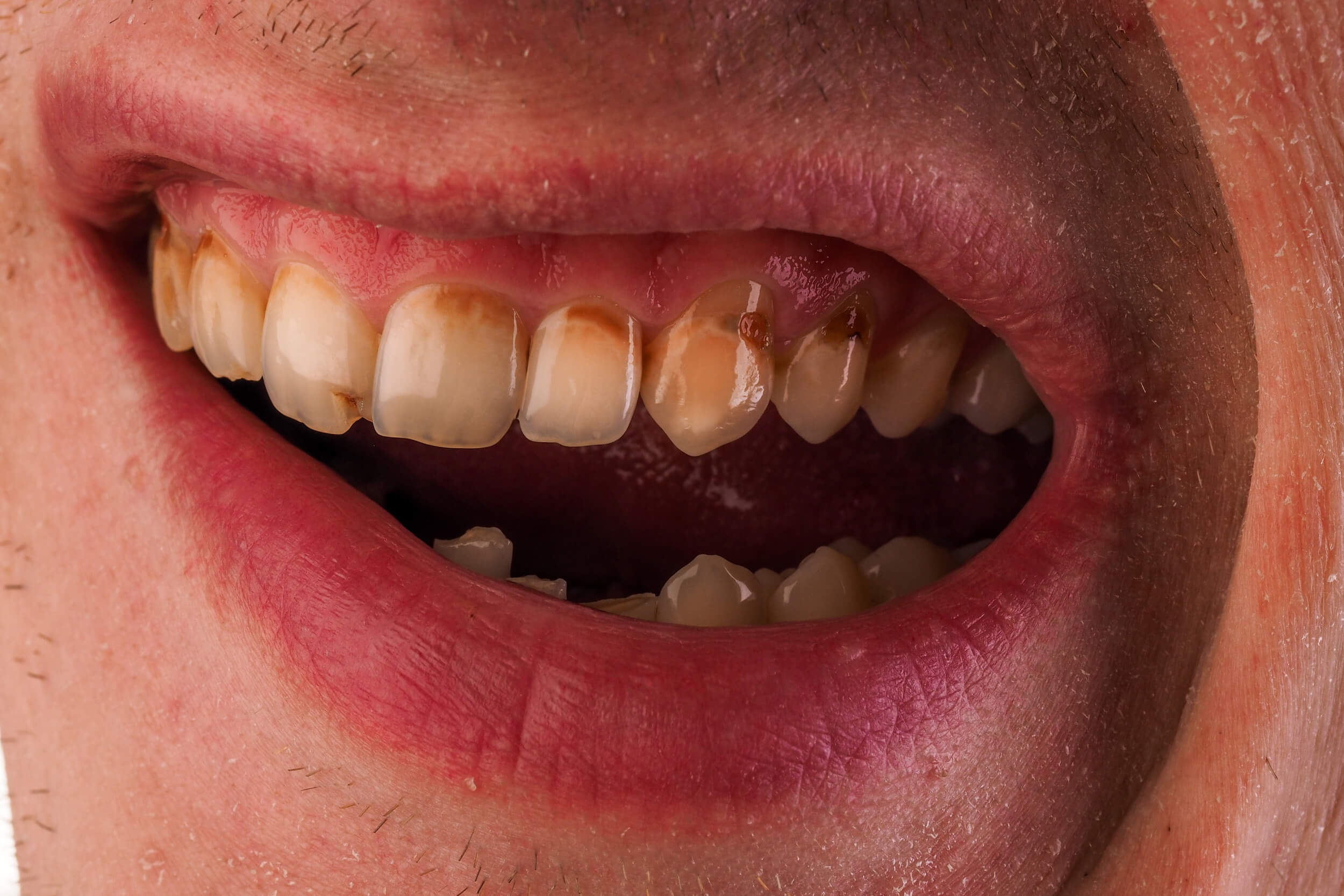Think about how often you use your teeth each day—for eating, speaking, or even just smiling at someone. When your mouth feels healthy, life runs smoothly. But when tooth pain or gum trouble shows up, even small tasks like enjoying a meal can suddenly feel hard.
What many people miss is that oral health is tied to more than looks. It connects to how well you eat, how fresh your breath feels, and even your overall health. The good news is that staying on track doesn’t take anything complicated. Sticking to teeth care basics—like brushing, flossing, and regular checkups—can keep problems from piling up. Paying attention now means fewer issues later and more comfort in everyday life.
What Oral Health Really Means
Oral health covers more than just your teeth. It also includes your gums, tongue, saliva, and even the jaw that holds everything in place. Each part has its own job—teeth for chewing, gums for support, saliva for cleaning, and the jaw for structure.
The real goal is comfort. A healthy mouth should be pain-free, able to bite and chew without problems, and let you smile without worry. If eating hot soup or drinking cold water hurts, something is off.
Prevention is the true backbone of care. When you stick to teeth care basics every day, you lower the chances of cavities, gum disease, or infections later. Brushing, flossing, and checkups may look simple, but they protect you from big issues. Think of oral health as more than keeping your teeth white—it’s about keeping your whole mouth working smoothly.
The Core of Good Daily Habits
Strong habits keep small problems from turning into big ones. These are the three daily steps worth focusing on:
- Brushing Done Right
- Twice a day—once in the morning and once before bed.
- Two full minutes each time, using gentle strokes at a slight angle.
- Don’t rush; covering every side of each tooth matters.
- Flossing Beyond the Basics
- Once a day, no matter when.
- Cleans spots your toothbrush can’t reach, especially between teeth.
- Reduces the risk of bleeding gums and bad breath.
- Mouth Rinses and Their Role
- Fluoride rinses help strengthen enamel.
- Antibacterial rinses lower germs that cause gum problems.
- They support brushing and flossing but never replace them.
Making time for these teeth care basics is easier than fixing cavities or sore gums later. Just three small habits protect your smile and keep your mouth healthier for years.
What You Eat Matters for Teeth
Food choices show up in your mouth faster than you think. What you snack on either helps your teeth or harms them.
Foods That Protect
- Crunchy fruits and veggies (like apples and carrots) scrub your teeth while you chew.
- Dairy products—milk, cheese, yogurt—add calcium for strong enamel.
- Nuts and leafy greens support gum health.
Foods and Drinks That Harm
- Sugary snacks fuel bacteria that create cavities.
- Soda, juice, and sports drinks wear down enamel with their acids.
- Alcohol dries the mouth, lowering saliva and raising the risk of infection.
Snacking often makes the damage worse since bacteria stay active longer. Sticking to teeth care basics isn’t just about brushing; it also means choosing foods that work with your teeth, not against them. A few swaps in your diet can make a huge difference.
Habits That Quietly Damage Teeth
Some daily actions cause harm without you noticing at first. Here are the habits to watch out for:
- Grinding and Clenching: Often stress-related, this wears down enamel and leaves jaws sore. Many people don’t realize they grind their teeth until the damage shows.
- Using Teeth as Tools: Opening bottles, tearing bags, or biting nails may seem harmless, but it chips enamel and weakens your teeth.
- Tobacco Use: Smoking or chewing tobacco not only stains teeth but also raises the risk of decay, gum disease, and even oral cancer.
Breaking these habits is a key part of teeth care basics. Protecting your teeth is not only about what you do right, but also about stopping the things that slowly wear them down. The earlier you quit these habits, the less permanent damage you’ll face.
Spotting Early Signs Before They Worsen
Paying attention to small changes in your mouth helps you act before issues grow. Here are the early signs:
- Tooth Decay: Pain, dark spots, or sensitivity to sweets may signal a cavity.
- Gum Problems: Red, swollen gums or bleeding when brushing point to gingivitis, the first stage of gum disease.
- Tooth Sensitivity: Sharp discomfort with hot or cold drinks may mean enamel is thinning or gums are pulling back.
- Dry Mouth: Constant dryness or trouble swallowing is more than annoying—it raises the risk of infection and cavities since saliva protects the mouth.
Noticing these changes and acting quickly can save you from major dental work. Teeth care basics like brushing and flossing lower these risks, but staying alert to warning signs ensures you don’t let small problems grow into painful ones.
The Role of Professional Care
Even with strong habits, home care isn’t enough for everything. Dentists spot issues you can’t see and handle buildup that brushing misses.
- Routine Checkups: Visiting twice a year helps catch cavities, gum disease, or other issues early, often before you feel pain.
- Professional Cleaning: Plaque hardens into tartar, which can’t be brushed away at home. A cleaning removes it and polishes teeth for a fresh start.
- When X-Rays Matter: Some problems hide under the surface. X-rays find cavities between teeth, bone loss, or early infections before they worsen.
Sticking to teeth care basics means more than brushing—it also includes these checkups. Regular visits save money, time, and a lot of discomfort in the long run.
Kids, Adults, and Seniors: Teeth Care at Every Stage
Mouth care looks different depending on your age. What matters most at one stage may not be as important at another.
- For Kids: The first dental visit should happen by age one. Baby teeth hold space for adult teeth, so they need brushing twice a day with a small amount of fluoride toothpaste. Parents can help children build habits early and keep sugar snacks to a minimum.
- For Adults: Busy schedules often lead to skipped checkups or rushed brushing. Adults should focus on routine maintenance, managing stress to avoid grinding, and watching for signs of gum disease. Habits during these years set the tone for long-term oral health.
- For Seniors: Aging often brings new challenges. Dentures or bridges require proper cleaning, while dry mouth from medications raises cavity risk. Seniors also face higher chances of gum disease, making regular dental visits even more important.
Every stage has unique needs, but steady habits and professional support remain the common thread.
Myths That Lead to Bad Care
Misunderstandings about oral health can do real harm. Here are some common myths:
- “Brushing harder cleans better.” The truth is, brushing too hard can wear down enamel and hurt gums. Gentle brushing is safer and just as effective.
- “Sugar-free gum replaces brushing.” Chewing gum helps boost saliva, but it can’t remove plaque. It’s only a small helper, not a full solution.
- “Baby teeth don’t matter since they fall out.” Primary teeth guide the growth and spacing of adult teeth. Cavities in baby teeth can also spread infection and pain.
Believing these myths can undo the effort you put into daily care. Clear information is just as important as strong habits.
Final Thoughts on Building Better Habits
Strong oral health doesn’t come from one big change—it’s built on steady routines. Brushing, flossing, eating smart, and seeing a dentist regularly all work together. Skipping even one of these steps leaves a gap that problems can slip through.
The real reward for good habits is less pain, fewer bills, and more confidence in your smile. Prevention always costs less than treatment, and it keeps your daily life more comfortable.
Start with just one small upgrade: floss tonight, schedule your overdue cleaning, or swap a soda for water. Little steps add up faster than you think. The sooner you begin, the easier it is to protect your mouth for years ahead.















